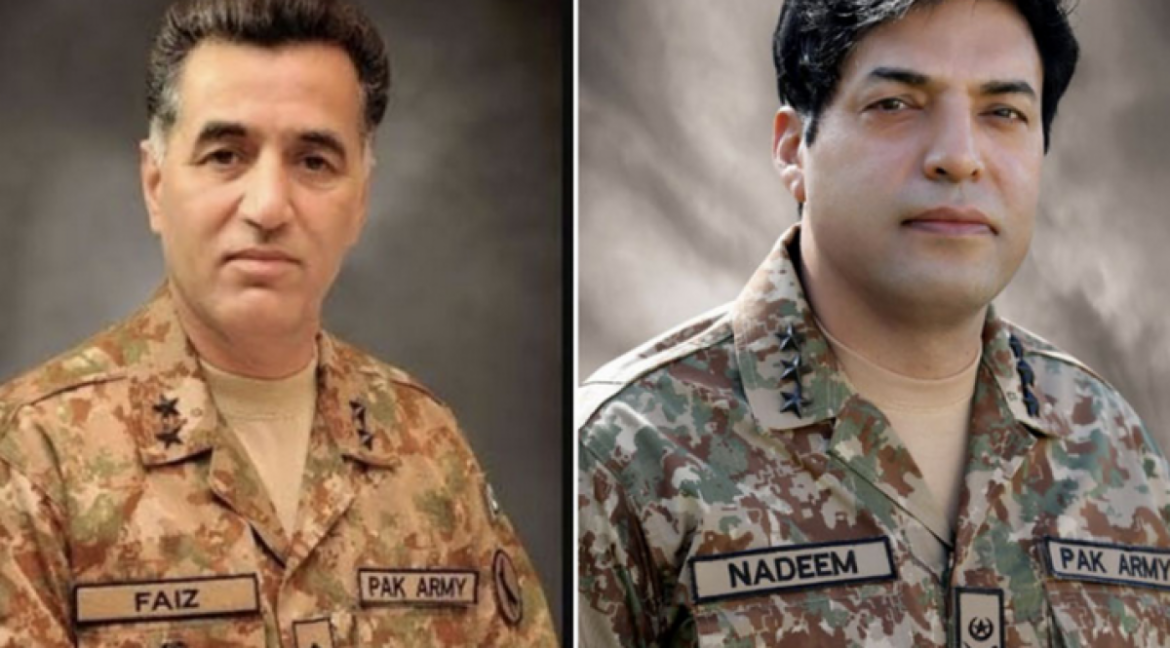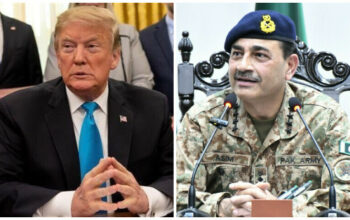By Staff Reporter
ISLAMABAD: Pakistan’s nascent democracy has recently witnessed a very positive omen for the country as the military establishment publicly surrendered itself bowing before Constitutional supremacy first time in the country’s history.
All in all, it has happened amidst assurances extended by the military establishment, reportedly having been discussed thoroughly amongst the existing officers who are going to serve at least for several years to come within the fold of the army that they would not intervene in the political arena.
In the last 40 years in the aftermath of General Zia ul Haq’s dictatorial rule, the civilian leadership had always demanded of the powerful establishment not plunge into politics and restrict their role in line with the Constitution and the oath taken at the time of joining the armed forces.
There are some instances in the recent past when the military establishment distanced itself from managing political affairs after General Pervez Musharraf left the power corridors. When General Ashfaque Pervez Kiani took over as DG ISI and later as Chief of Army Staff, he advised his subordinates to refrain from involvement in politics.
But it could not last for long and the establishment began inducing new narratives in the political milieu. An extra push came under the tenure of former military officers like Shujjah Pasha, Zaheer Ul Islam, and very recently General Faiz Hameed pushed it further to its peak by managing the PTI-led government including the parliamentary affairs.
Now, seemingly the military establishment, as an institution, has decided to refrain from involvement in managing politics. Consequently, PTI leadership, most vocally Imran Khan, has been criticizing the military establishment for the ‘new role’. First of all, he termed them as “neutral” and declared them “animals”. It seems that Imran Khan wishes that the military establishment should assume the role of a facilitator for the continuation of his endeavors for clinging to power at all costs. Otherwise, he would start opposing them. The Constitution of Pakistan and the oath bind military personnel not to plunge into politics. It’s a good omen for the country that the military establishment has decided to stand with the Constitution instead of protecting or promoting the desires of any individual.
The incumbent DG ISI was left with no other option but to go public to defend the new narrative of non-involvement in political affairs adopted by the establishment. It is assumed that it will be challenging for the military leadership to stick to its new role to ensure zero involvement in politics.
The intelligence agencies in Pakistan require overhauling to devise fresh Standard Operating Procedures (SOPs) as well as Key Performance Indicators (KPI). The strengthening of the National Counter Terrorism Authority (NACTA) with a role of providing umbrella setup and ensuring coordination among all of them is much needed
In Pakistan, there are 32 intelligence and operational agencies at the federal level. At least 26 intelligence and operational agencies generate varying degrees of intelligence, but there is no central body to integrate their intelligence. Therefore, Experts are of the opinion that National Counter Terrorism Authority (NACTA) should act as a federal secretariat for internal security.
There should be no role of intelligence agencies in breaking or making new political alliances in the country. Under the NACTA, a fresh set of SOPs for intelligence agencies should be debated, keeping in view such mandates given in other countries. There is no easy solution but we can fix it if there is a political will to do it.
Copyright © 2021 Independent Pakistan | All rights reserved




